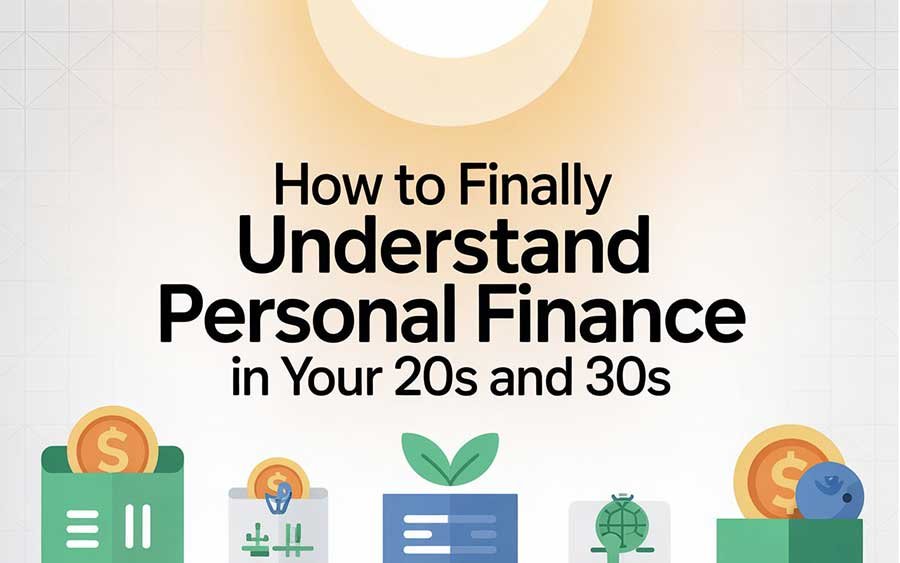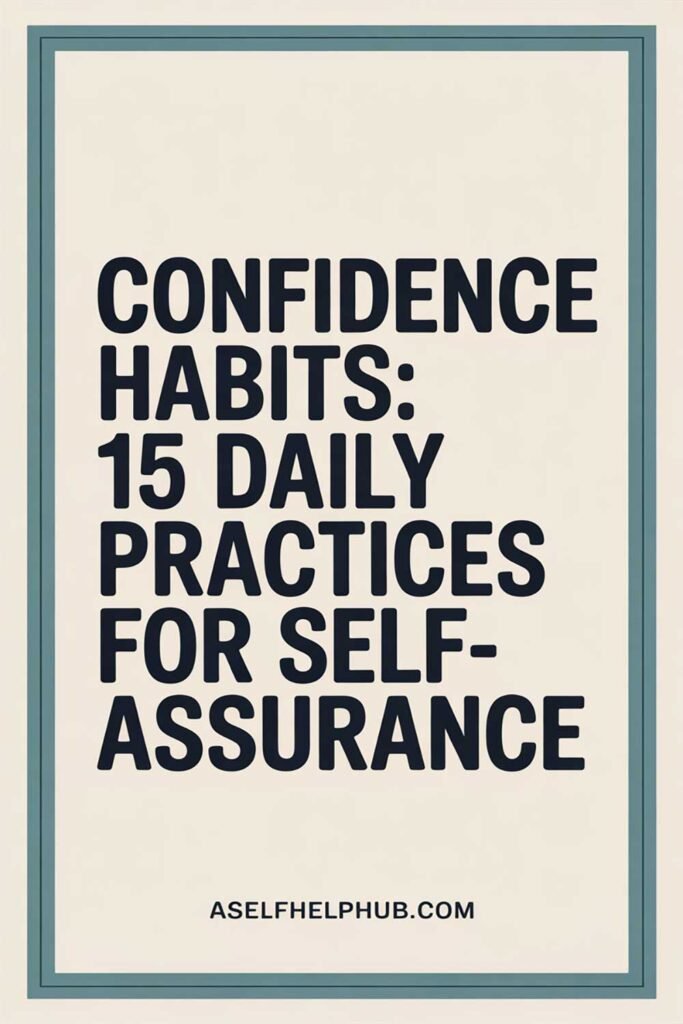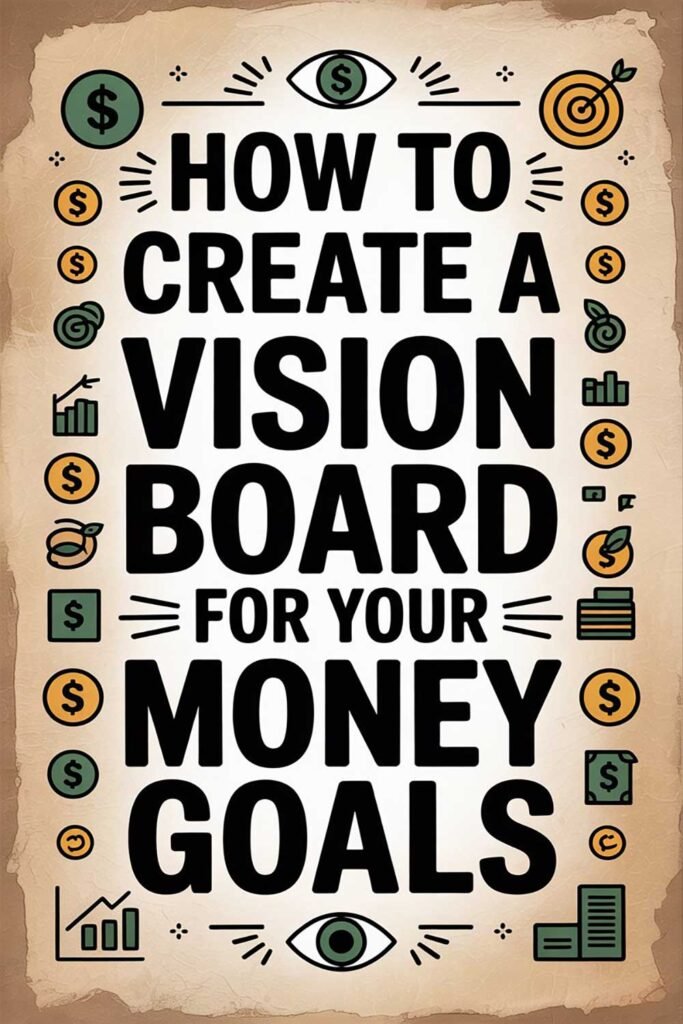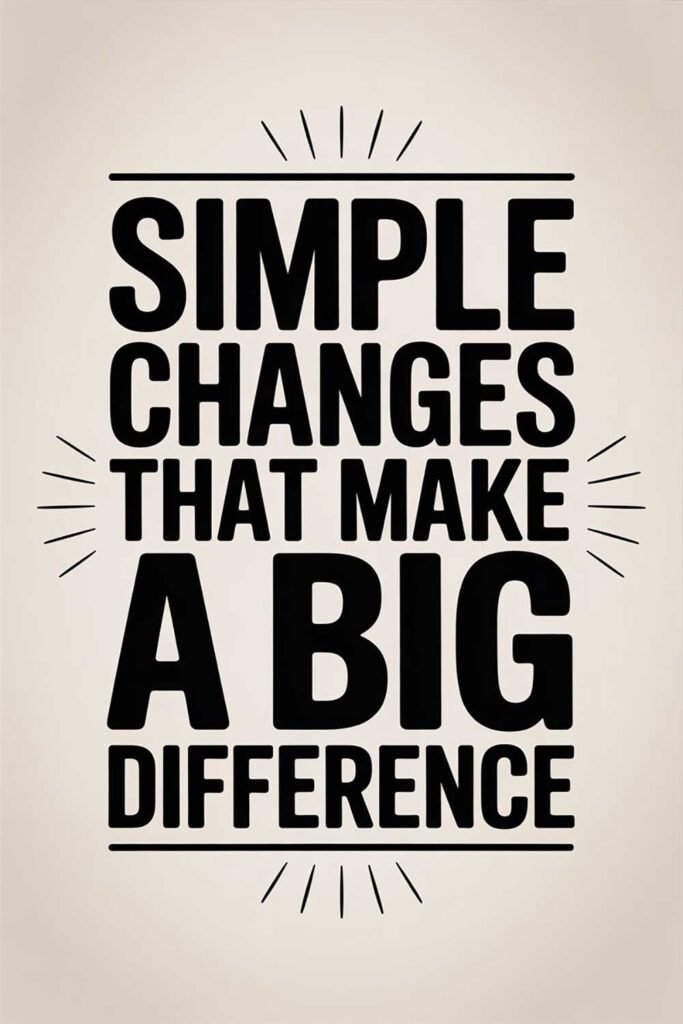
How to Finally Understand Personal Finance in Your 20s and 30s
Let’s be honest: Personal finance can feel overwhelming in your 20s and 30s. Between student loans, rent, credit cards, and trying to enjoy life, it’s easy to avoid thinking about money altogether. But the truth is, the financial decisions you make now will shape your life for decades to come.

The good news? You don’t need a finance degree to take control of your money. You just need a simple roadmap and the willingness to start. This article is your go-to guide to finally understanding personal finance while you’re still young enough to make it count.
Why Personal Finance Matters in Your 20s and 30s
Your early adult years are when financial habits are formed. These years are a launchpad for everything that follows — your home, your freedom, your investments, even your retirement.
Understanding money now gives you:
- Control instead of anxiety
- Confidence instead of confusion
- Options instead of limitations
When you get your financial house in order early, you’re setting yourself up for decades of freedom and peace.
Step 1: Know Where Every Dollar Goes
The first step to mastering money is awareness. You can’t improve what you don’t track.
Start by:
- Reviewing 2-3 months of bank/credit card statements
- Categorizing your spending (housing, food, subscriptions, etc.)
- Tracking every dollar for 30 days
Use apps like:
- Mint
- YNAB (You Need A Budget)
- EveryDollar
Real-Life Example:
Emily, a 29-year-old teacher, thought she was “okay” with money until she saw she was spending $500/month on food delivery. After tracking, she cut it in half and started investing the difference.
Step 2: Create a Budget You Can Actually Stick To
Budgeting isn’t restrictive. It’s freedom with a plan.
Popular methods:
- 50/30/20 Rule: 50% needs, 30% wants, 20% savings/debt
- Zero-Based Budget: Every dollar is assigned a job
Choose the method that fits your lifestyle, and revisit your budget monthly.
Real-Life Example:
Carlos, a 24-year-old grad student, hated budgeting. But when he used the 50/30/20 method, he finally saw where his money was going. He used the 20% savings chunk to build a 3-month emergency fund in under a year.
Step 3: Build an Emergency Fund First
Life happens. Your car breaks down. You get laid off. Emergencies are when, not if.
Start with:
- $500 to $1,000 for unexpected expenses
- Build up to 3–6 months of living expenses in a separate savings account
Avoid using credit cards for emergencies. A cushion gives you peace of mind and buying power.
Step 4: Tackle Debt Strategically
Debt isn’t always evil, but it needs a plan.
Use one of these methods:
- Snowball: Pay off the smallest debt first for motivation
- Avalanche: Pay off the highest-interest debt first for long-term savings
Make more than the minimum payment every month when you can.
Real-Life Example:
James, a 31-year-old engineer, had $40K in student loans. He focused on the avalanche method and refinanced to lower interest. He paid it off 5 years early.
Step 5: Learn the Basics of Credit
Credit is more than a number — it’s your financial reputation.
To build or improve your credit score:
- Pay bills on time
- Keep credit utilization under 30%
- Avoid opening too many accounts at once
A strong credit score saves you thousands on interest for homes, cars, and more.
Step 6: Start Investing, Even If It’s Just $25 a Month
Time is your biggest investing asset. The earlier you start, the less money you have to invest later.
Options include:
- Roth IRA or Traditional IRA
- 401(k) or 403(b) with employer match
- Low-cost index funds
Use platforms like Fidelity, Vanguard, or Betterment.
Real-Life Example:
Rachel, a 26-year-old barista, opened a Roth IRA with just $50/month. In 10 years, she had over $11,000 thanks to compounding interest.
Step 7: Protect Yourself With Insurance
The right insurance protects your finances from disaster.
Must-haves in your 20s and 30s:
- Health insurance (even high-deductible plans are better than none)
- Renter’s or homeowner’s insurance
- Auto insurance
- Term life insurance if you have dependents or debt co-signers
Don’t skip coverage to save money — it often costs more in the long run.
Step 8: Understand Financial Red Flags and Mindset Traps
Common financial mistakes include:
- Living off credit cards
- Ignoring your budget
- Thinking you’ll “figure it out later”
Financial growth starts with mindset:
- Stop comparing your financial journey to others
- Learn from mistakes
- Progress beats perfection
Real-Life Example:
Tyler, 34, finally faced his $10,000 credit card debt after years of avoidance. He made a debt-free plan and started journaling his progress. The mindset shift changed everything.
Step 9: Set Financial Goals That Inspire You
Money without a goal is just paper.
Set short, medium, and long-term goals like:
- Save $1,000 in 3 months
- Pay off credit cards by next year
- Buy a home in 5 years
Make goals SMART: Specific, Measurable, Achievable, Relevant, Time-bound.
Use vision boards, goal apps, or habit trackers to stay motivated.
Final Thoughts: You Don’t Have to Be a Finance Expert
You don’t have to master every aspect of finance at once. Start with awareness, build good habits, and keep learning.
Your 20s and 30s are your financial foundation. Brick by brick, every good decision you make now creates the financial life you deserve.
Start now. Future you will be so grateful.
20 Quotes to Inspire Financial Confidence
- “Do not save what is left after spending, but spend what is left after saving.” — Warren Buffett
- “A budget is telling your money where to go instead of wondering where it went.” — Dave Ramsey
- “Financial peace isn’t the acquisition of stuff. It’s learning to live on less than you make.” — Dave Ramsey
- “Beware of little expenses. A small leak will sink a great ship.” — Benjamin Franklin
- “Your habits will determine your future.” — Jack Canfield
- “An investment in knowledge pays the best interest.” — Benjamin Franklin
- “Too many people spend money they haven’t earned to buy things they don’t want to impress people they don’t like.” — Will Rogers
- “Success is not in what you have, but who you are.” — Bo Bennett
- “It’s not your salary that makes you rich, it’s your spending habits.” — Charles A. Jaffe
- “Financial freedom is available to those who learn about it and work for it.” — Robert Kiyosaki
- “Save money, and money will save you.” — Jamaican Proverb
- “Time is more valuable than money. You can get more money, but you cannot get more time.” — Jim Rohn
- “Discipline is the bridge between goals and accomplishment.” — Jim Rohn
- “The best way to predict the future is to create it.” — Abraham Lincoln
- “Never spend your money before you have earned it.” — Thomas Jefferson
- “Success is the sum of small efforts repeated day in and day out.” — Robert Collier
- “Richness is not about what you have. It’s about what you do with what you have.” — Unknown
- “You must gain control over your money or the lack of it will forever control you.” — Dave Ramsey
- “Good fortune is what happens when opportunity meets planning.” — Thomas Edison
- “Don’t wait. The time will never be just right.” — Napoleon Hill
📸 Picture This
Imagine opening your banking app and smiling, not cringing. Your bills are paid. Your savings are growing. Your debt is shrinking.
You know exactly where your money goes. You’re funding your future, enjoying your present, and feeling completely in control. You’re no longer surviving — you’re thriving.
That peace of mind? It starts with the financial steps you take today.
What could your life look like if you truly understood your money?
📢 Please Share This Article
If this article helped clarify personal finance or motivated you to take the next step, please share it with someone in their 20s or 30s who needs this today.
⚠️ Disclaimer
This article is for informational purposes only and is based on personal experiences and research. It does not constitute financial advice. Please consult a licensed financial advisor for personalized guidance. We disclaim all responsibility for any decisions made based on this content.






